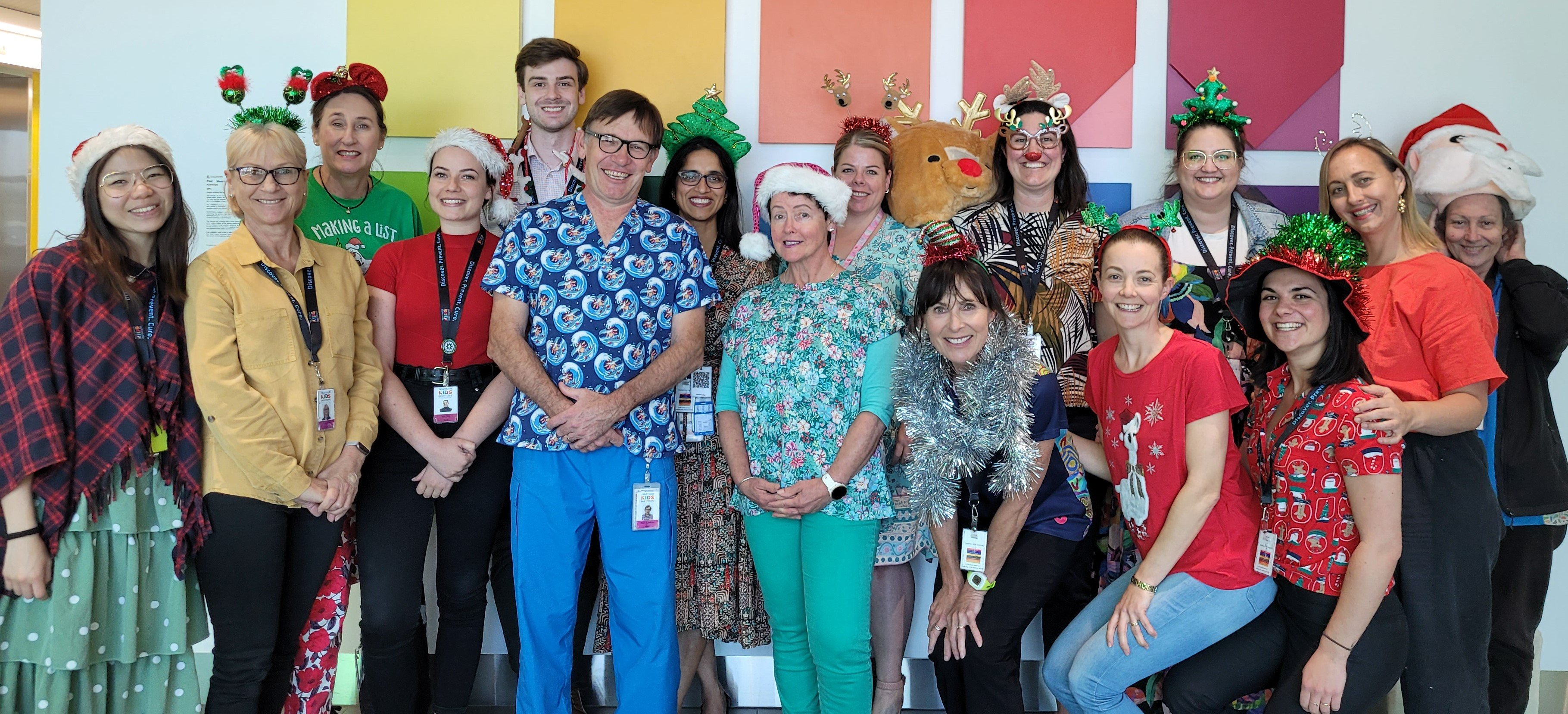2022 Vaccine Trials Group Christmas Update

The year that was ..... 2022!
Reflecting on the past year in Western Australia, we were very fortunate to have achieved some of the highest COVID-19 booster vaccination rates for adults in the world. When we opened our borders in March after almost two years, the rapid spread of Omicron variants throughout the community in such a short space time highlighted how infectious these variants were. In fact, our study of COVID-19 antibodies in children showed that almost two thirds of all children in WA had been infected within the first six months of opening borders! It was also clear how well three doses of the COVID-19 vaccine protected against severe disease, as we had significantly lower rates of hospitalisations and deaths compared to the rest of Australia. Unfortunately, the associated re-appearance of influenza and respiratory syncytial virus (RSV), as well as many other viruses, meant it has been a challenging year for both families and the health services - one of which we are only just starting to recover from!
Throughout 2022, we have been busy investigating new immunisations, as well as how we can use existing vaccines to better prevent COVID-19, influenza and RSV in children and adults. These include:
- The launch of the PICOBOO Study for adults and teenagers, looking at the three COVID-19 vaccines currently available in Australia to inform how often we will need boosters, as well as which ones provide optimum protection. The first results are expected early next year.
- We completed the COVALIA Study, looking at a needle-free COVID-19 vaccine, which was very exciting as this was the first time this vaccine has been studied in humans. This approach was very well tolerated and the results on studies of protective antibodies are now being analysed.
- We made great progress in the prevention of RSV disease in babies, which is one of the most common viruses causing children to be admitted to hospital. As part of the global Melody Study, we have been studying an RSV antibody therapy that can be used for immunisation in young babies before the winter RSV season, and it has been found to be safe and highly effective against severe infection. This immunisation was approved recently in Europe and should be available in Australia later next year.
- From our involvement in the Matisse Study, we have also shown that an RSV vaccine given to pregnant mothers is very effective in preventing severe RSV infections in the first three months of life. A request for approval was recently submitted to the Food and Drug Administration in the USA, and we hope it will be available in Australia in the not too distant future. Having two effective approaches to prevent RSV infections will be welcomed by all families across WA and will see a majoy reduction in the number of children with RSV in the paediatric wards of our hospitals.
We saw decreases in many serious infections such as whooping cough during the COVID-19 social and travel restrictions, but unfortunately this has been short-lived, so we have continued to work to help develop better pertussis vaccines for babies, children and adults through our OPTIMUM, Whooping Cough in Young Adults and Adolescents and SUPER studies.
We have also been looking at how we can boost protection against the five main strains causing meningococcal disease in a combined MenABCWY vaccine in teenagers and young adults through our BOOST and QUINTET studies. A single vaccine for young adults - one of the main meningococcal risk groups - will be particularly valuable with reports of serious infections occurring at mass gatherings such as music festivals.
We are working hard to better understand how to treat and prevent ear infections (otitis media) in children with the ATOMIC Study looking at a novel way of reducing the number of surgeries children need to have for this common condition.
 Finally, this year we launched an important new study looking at preventing cytomegalovirus (CMV), which is a common infection that usually goes unnoticed in young children, but is major problem for people with suppressed immune systems and in pregnant mothers. CMV is one of the leading causes of birth defects around the world, and there is currently no vaccine to protect against the virus. We are still looking for more volunteers to take part in the CMVictory Study, so check out the study page to see if you may be eligible.
Finally, this year we launched an important new study looking at preventing cytomegalovirus (CMV), which is a common infection that usually goes unnoticed in young children, but is major problem for people with suppressed immune systems and in pregnant mothers. CMV is one of the leading causes of birth defects around the world, and there is currently no vaccine to protect against the virus. We are still looking for more volunteers to take part in the CMVictory Study, so check out the study page to see if you may be eligible.
I would like to thank all the families and individuals who have volunteered for our studies and enabled us to undertake this vital research. We couldn’t do it without you, and we really appreciate the time and effort that you provide for our research that will help us protect future generations.
Also, thanks to all our fabulous research staff at the Vaccine Trials Group and the support staff at The Kids Research Institute Australia and Perth Children's Hospital who work so hard to make sure our internationally recognised research is of such high quality. It is truly a team effort!
We wish all readers a happy Christmas and festive season and a healthy and prosperous New Year. Despite COVID-19 still being with us in 2023, we look forward to returning to business as usual and working together with the community to reduce the burden of infectious diseases now and into the future.
Happy Holidays,
Professor Peter Richmond - Head of the Vaccine Trials Group
